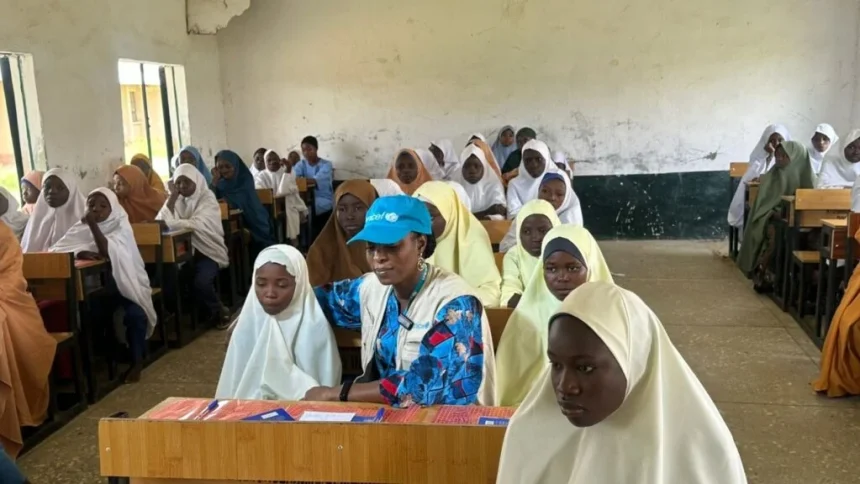He explained that the REACH programme had been implemented across six Local Government Areas (LGAs) in the state in the past two years.
According to him, the local government areas include Katsina, Kafur, Kankara, Rimi, Baure and Mani, adding that it was aimed at boosting school enrollment, retention and completion.
The education specialist disclosed that the beneficiaries were empowered with skills, such as knitting, crochet, henna design, cap making, throw pillow creation and other life-changing skills to enable them pursue their respective life careers.
Also speaking, the UNICEF Adolescent Development Specialist, Ngozi Izuora-Songu, said that out-of-school girls and those who survived Gender-Based Violence (GBV) were among those that benefited from the training and empowerment.
Izuora-Songu noted that the skills were expected to provided the girls with a foundation for income generation.
“The vocational skills acquired by the girls aligned with local market demands, making their products highly marketable within their communities and in urban centres,” she said.
She also said that medical test kits were donated to six health centers across three LGAs of the state to boost local healthcare capacity to support GBV survivors.
She added that no fewer than 150 traditional and religious leaders and law enforcement personnel, were sensitised on child protection and GBV at various training sessions across the state.
According to her, this engagement improved community responsiveness to GBV cases and strengthened local child protection structures.
“Health workers were trained in the proper use of these kits, which enable screenings for sexually transmitted infections and injuries and supporting timely medical interventions for survivors.”
Izuora-Songu described the meeting conducted across the six benefitting local government areas as a viable platform to evaluate the barriers to the transitioning of adolescent girls from primary to secondary school.
The specialist noted that the meeting also served as inclusive platforms to dialogue among key stakeholders, including adolescent girls, parents, principals, teachers, and education officials, allowing communities to reflect on the impact of REACH interventions.
The News Agency of Nigeria (NAN) reports that the meeting was organised by UNICEF, in collaboration with the Katsina State Universal Basic Education Board (SUBEB).



